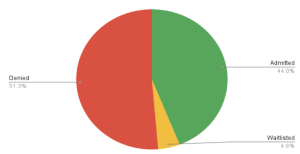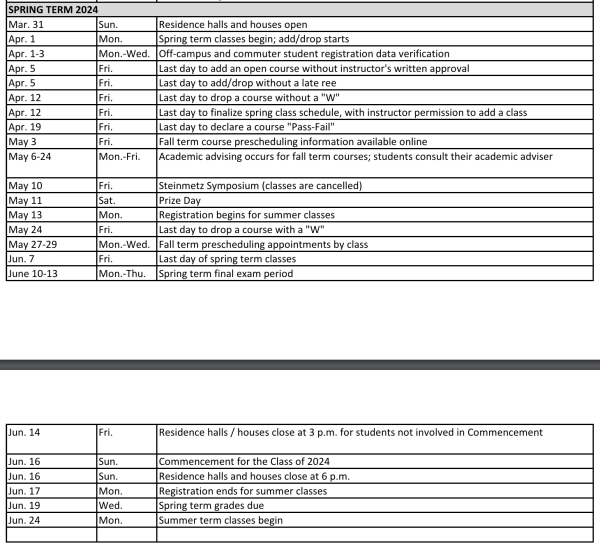Too much sleep could bring negative impacts to community
January 23, 2019
Every night, our minds slowly quiet and our brains take a break. Sleep takes over our bodies and an aura of relaxation recovers us from the day’s tasks. We all know of the vital importance of sleep, yet the arbitrarily decided hours which we “need” are exceedingly hard to come by, especially in college.
Between the immense stress and vast social events, the time we spend sleeping wanes. Regardless, we all try for the most sleep between naps and limited nighttime hours in (hopefully) our own beds, and manage to make it to the end of term where we spend at least a week of break in total comatose.
As we know, lack of sleep has numerous detriments and affects us in ways we hate to acknowledge. However, new studies are indicating that too much sleep can be problematic as well. The consistently sleep deprived student who loves the procrastinated all-nighters may look at the research and become excited, as their little sleep may not be so bad after all. I hate to burst their bubble, but the research that states the harm of too much sleep doesn’t discount the data on too little sleep.
So, for those of you out there who are even more sleep deprived than the typical college student, tough luck. Nevertheless, the research does pose interesting points for college students in that naps and REM rebound, or nights that we overcompensate for our lack of sleep with 10+ hours, can be harmful.
The data states that “daytime napping is associated with increased risks of major cardiovascular events and deaths in those with >6 hours of nighttime sleep but not in those sleeping ≤6 hours/night.” This information is critical, because it also indicates that 6-8 hours of nightly sleep is associated with optimal health.
Six hours is about average for college students, and is in fact, okay. See, there’s a little bit of silver lining for us.
However, the key part of this data is 6 hours of nighttime sleep, which means quality, uninterrupted sleep.
The study also found that “those who slept 9–10 hours were 17 percent more likely to die or develop heart and blood vessel conditions. Similarly, people who regularly slept more than 10 hours were 41 percent more likely to die prematurely or develop cardiovascular problems.” These statistics are exceedingly unsettling, as it questions how we naturally think about sleep. More is better, less is worse.
However, this data’s information regarding proper sleep is engaging and important, but the actual research that indicates the scary statistics that too much sleep can be harmful is a bit hazy. They found that “the risk of premature death or cardiovascular conditions was 5 percent higher for people who slept 8–9 hours than for people who slept the recommended amount.” This data was mostly self-reported and took into account a limited number of external health considerations.
The key missing information lies in genetic components, as other studies indicate that everyone’s set point for sleep is different. This means that one person may require 8 hours to feel the same as someone else who’s had only 5 hours.
Genetics can affect this set point very much, and would help to refine the results of the study. Separately, the sheer fact that the study was observational and not experimental indicates that the relationship garnered is strictly associative and not causal. This means that the data doesn’t show that more sleep causes younger death. Therefore, the confounding variables of genetics and such likely change the data.
While the data does indicate that quality and consistent sleep is important for health, the information that too much sleep is problematic is fairly arbitrary. It’s important to read these big-claim articles with a grain of salt, as their information is not too accurate.
Nevertheless, the research basically just states what college students are all too aware of: our sleep habits are poor and we should be better.








